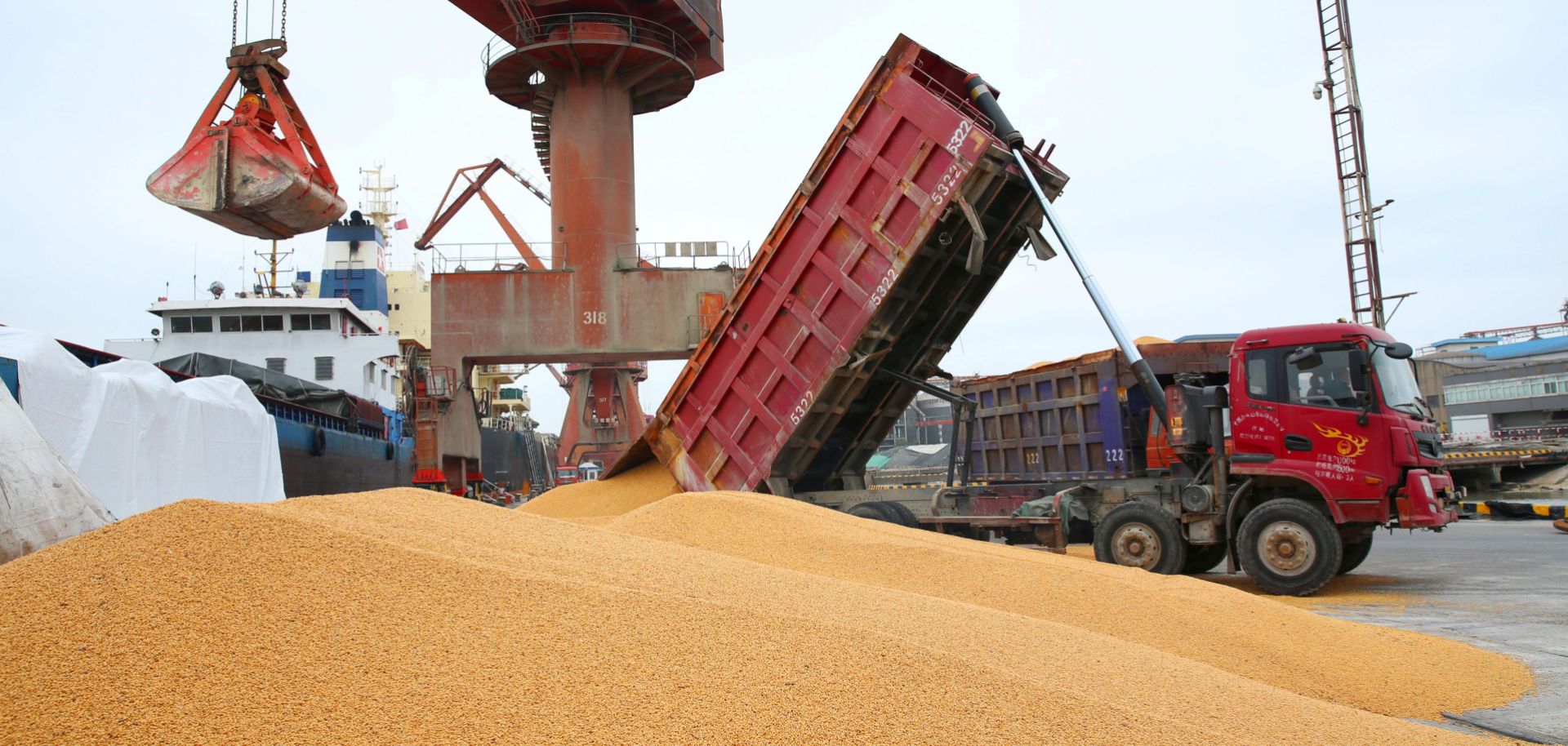ASSESSMENTS
Tariffs on U.S. Soy Will Strengthen Brazil's Hand in the Chinese Market
Jul 20, 2018 | 09:00 GMT

Workers load imported soybeans onto a truck at a port in Nantong in China's eastern Jiangsu province. Chinese soybean stocks are at a 10-year high, which could help China absorb the loss of U.S. imports brought on by tariffs.
(AFP/Getty Images)
Highlights
- In the short term, China remains in a stronger position than the United States in terms of the soy market, with numerous alternative suppliers and substitutes for U.S. product available.
- Still, the large share of the Chinese market held by U.S. soybean exporters means that Beijing likely will be unable to shut off all U.S. soy imports.
- Tariffs will accelerate an existing trend that has led to increasing Brazilian soy exports to China.
Subscribe Now
SubscribeAlready have an account?
